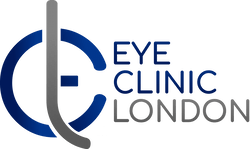Who Cannot Do ICL Surgery? Understanding the Limitations

If you’ve been struggling with glasses or contact lenses for years, the idea of implantable contact lens (ICL) surgery may sound like a life-changing solution. It offers clear vision without the constant maintenance of lenses or the irreversibility of laser procedures. But here’s the truth: ICL surgery isn’t suitable for everyone.
You may be wondering, “Could I qualify for ICL surgery?” or “Are there reasons I might be told no?” Knowing the limitations upfront will help you save time and make informed choices. In this article, I’ll explain the main reasons some people cannot do ICL surgery from age restrictions to specific eye health conditions. By the end, you’ll have a clear sense of whether it’s something worth exploring further with your ophthalmologist.
If you’re unsure whether you tick all the boxes for ICL surgery, don’t worry you’re not alone. The best next step is to book a thorough eye exam and talk it out with a trusted ophthalmologist. They can walk you through your unique eye health, answer your questions, and help you decide if this procedure is the right fit for you.
What Is ICL Surgery?

Before diving into the limitations, let’s quickly clarify what ICL surgery involves. Unlike LASIK, which reshapes your cornea with a laser, ICL surgery involves placing a tiny, customised lens inside your eye, between your natural lens and the iris.
Think of it as adding an internal contact lens one that doesn’t dry out, doesn’t need cleaning, and is invisible to others. The procedure is minimally invasive, reversible, and often preferred by patients who want a stable vision correction solution without permanently altering the cornea.
Now that you know the basics, let’s explore who cannot do ICL surgery and why.
If you’re picturing it as a high-tech upgrade for your eyesight, you’re on the right track. But like any medical procedure, it’s not a one-size-fits-all fix, which is why understanding the eligibility rules is so important before you get too excited about booking a surgery date.
Age Restrictions

One of the very first questions surgeons will ask is about your age. Why? Because your eyes go through natural changes as you grow, and performing ICL surgery too early or too late can affect the results.
Too young (below 21): If you’re under 21, your prescription is probably still shifting as your eyes continue to develop. Getting ICL surgery before your vision stabilises means you could see changes in your eyesight afterward, which may undo the benefits of the procedure and even require future corrections.
Too old (above 45–50): On the other side of the spectrum, age brings its own challenges. Around your mid-40s, presbyopia also known as age-related near vision loss starts to become noticeable. Even if ICL corrects your distance vision, you might still need reading glasses for close work, which can reduce the overall value of the surgery.
Because of these factors, most surgeons recommend ICL for adults between 21 and 45 who have had a stable prescription for at least a year. This range gives the best chance of long-lasting results and a smoother recovery.
If you happen to fall just outside this guideline, don’t assume the door is completely closed. Your ophthalmologist can assess your prescription, eye health, and lifestyle to see whether there’s some flexibility, but it’s always wise to go in with realistic expectations about what’s safe and worthwhile for you.
Unstable Prescription
Even if you fall within the ideal age range, having a stable prescription is crucial. If your glasses or contact lens power has shifted significantly over the past year or two, your surgeon will likely suggest waiting before considering ICL surgery.
Why does stability matter so much? The implanted lens is custom-made to match your current prescription, aiming to give you clear, long-lasting vision. If your eyes continue to change after surgery, the lens might not correct your vision properly, which could mean needing additional procedures or corrective lenses sooner than you expected. Essentially, the more stable your prescription, the more reliable and durable the results of ICL surgery will be.
Even if your prescription has fluctuated slightly, a thorough evaluation by your ophthalmologist can determine whether you’re close enough to stability or if waiting a bit longer will give you a better outcome.
Corneal Health Concerns

Even though ICL surgery doesn’t involve removing corneal tissue like LASIK does, your cornea’s health still plays a critical role in whether you’re a suitable candidate. Certain conditions can make the procedure riskier or less effective.
For example, keratoconus, which causes the cornea to thin and bulge over time, can make it unsafe to place an implantable lens. Corneal scarring from previous injuries or infections may also interfere with the lens sitting correctly and could affect visual outcomes. Additionally, irregular astigmatism that cannot be fully corrected with a lens can reduce the benefits of ICL surgery.
If your cornea is already compromised, adding an internal lens may increase potential complications or limit how much improvement you can expect. That’s why a thorough corneal assessment is always part of the pre-surgery evaluation, ensuring the procedure is both safe and effective for your unique eyes.
Insufficient Anterior Chamber Depth
This might sound technical, but it’s a really important factor when it comes to ICL surgery. The anterior chamber is the space in your eye located between the cornea and the iris. For the procedure to be safe, there needs to be enough room to insert the implantable lens without crowding other internal structures, like your natural lens.
If your anterior chamber is too shallow, the surgeon cannot safely place the ICL. Crowding can lead to complications such as damage to the cornea, increased eye pressure, or even a higher risk of glaucoma over time. In these cases, attempting the procedure could do more harm than good.
Your eye doctor can measure this space precisely during a pre-surgery evaluation. If your anterior chamber depth is borderline, they might discuss alternative vision correction options that are safer and better suited to your eyes.
Even if you’ve read success stories from friends or online, remember that your individual anatomy matters most. What works well for one person might not be safe for another, which is why this measurement is non-negotiable before moving forward.
Pre-existing Eye Diseases
Certain eye conditions can automatically rule out ICL surgery, as they make the procedure risky or less effective.
For instance, glaucoma is a concern because ICL implantation can increase intraocular pressure, potentially worsening the condition. Cataracts, which cause clouding of the natural lens, are another example if you already have a cataract, removing and replacing your lens is usually the safer and more effective route. Uveitis, a type of chronic inflammation inside the eye, can make lens implantation unsafe due to the heightened risk of post-surgery complications. Even severe dry eye disease, though less of a concern than with LASIK, can interfere with healing and comfort after the procedure.
This is why your surgeon will perform a thorough eye exam before recommending ICL surgery. They’ll look closely at your eye health history, current conditions, and overall ocular structure to ensure that the procedure is safe for you.
Remember, having one of these conditions doesn’t necessarily mean you’ll never achieve clear vision without glasses it just means ICL might not be the right solution. Your ophthalmologist can help explore other options that are tailored to your eyes and lifestyle.
Extremely High or Low Prescriptions
ICL surgery is incredibly versatile and can correct a wide range of prescriptions often higher than what LASIK or PRK can safely treat. However, like any procedure, it does have limits.
If your myopia (short-sightedness) or hyperopia (long-sightedness) is beyond the approved range of the lens, you simply won’t be eligible for ICL. Similarly, people with extremely high astigmatism may not achieve full correction, meaning the results might not meet your expectations.
In these cases, your surgeon will discuss alternative treatments, such as a refractive lens exchange, which can safely address very strong prescriptions. The key takeaway is that while ICL works for many, it’s not a universal fix and understanding the limits helps set realistic expectations.
Even if your prescription is borderline, a detailed consultation can help you find the safest and most effective way to achieve clear vision without compromising eye health.
Pregnancy or Breastfeeding
If you’re currently pregnant or breastfeeding, it’s usually best to postpone ICL surgery. Hormonal changes during these periods can cause your vision to fluctuate, meaning your prescription might not be stable.
Most surgeons recommend waiting at least six months after breastfeeding before considering the procedure. This gives your eyes time to settle back to their natural prescription, ensuring that the lens implanted will provide accurate and long-lasting correction.
Undergoing surgery during pregnancy or shortly after breastfeeding could lead to unpredictable results, and you might find yourself needing further adjustments sooner than expected. Taking a little extra time now helps secure the best possible outcome for your vision later.
Poor General Health
Even though ICL surgery is generally safe and minimally invasive, your overall health can impact whether it’s a good option for you. Conditions that affect healing such as uncontrolled diabetes, autoimmune disorders, or certain vascular diseases may increase the risk of complications or slow recovery, leading surgeons to advise against the procedure.
Certain medications can also affect eye health or interfere with healing, so providing a complete medical history is essential. This helps your ophthalmologist assess any potential risks and determine whether ICL surgery is safe and appropriate for your situation.
Ultimately, being in good general health improves not just safety, but also the chances of achieving long-lasting, optimal vision after surgery. Your surgeon will weigh all these factors carefully before giving a recommendation.
Unrealistic Expectations
This point often gets overlooked, but it’s one of the most important. Even if you’re technically eligible, you may not be a good candidate if your expectations don’t align with reality.
- ICL surgery won’t give you superhuman vision.
- You may still need reading glasses later in life.
- Like any surgery, there are risks, including infection, glare, and halos.
If you’re expecting perfection with zero risks, you may not be an ideal candidate.
Comparing ICL with Other Vision Correction Options
If you’ve realised that ICL surgery might not be suitable for you, don’t worry there are plenty of other ways to improve your vision. Each option has its own strengths depending on your prescription, eye health, and lifestyle.
LASIK: This is often the go-to choice for mild to moderate prescriptions and healthy corneas. It reshapes the cornea with a laser, providing quick recovery and minimal discomfort.
PRK (Photorefractive Keratectomy): If your corneas are too thin for LASIK, PRK may be a safer alternative. While recovery can take a little longer, it still offers effective vision correction without the need for an implant.
Refractive Lens Exchange: This procedure is more suitable for older patients or those with early cataracts. It replaces your natural lens with an artificial one, correcting both distance and near vision in some cases.
Contact Lenses or Glasses: For many people, traditional lenses are still the safest, most accessible option. They can adapt to changing prescriptions and avoid surgical risks entirely.
Your ophthalmologist will guide you through these alternatives, helping you choose the method that best fits your eyes and lifestyle. Remember, the “right” solution isn’t always the newest or most high-tech it’s the one that works safely and effectively for you.
The Importance of a Professional Assessment
At the end of the day, only a qualified ophthalmologist can confirm whether ICL surgery is right for you. They’ll run a series of detailed tests, checking things like corneal thickness, anterior chamber depth, prescription stability, and overall eye health to make sure the procedure is both safe and effective.
If you’re thinking about ICL surgery in London, booking a consultation at a trusted clinic is a smart first step. During this visit, you’ll get a personalised assessment and answers to all your questions, so you can make an informed decision.
Remember, the goal isn’t just to ditch your glasses or contact lenses it’s about protecting your long-term eye health while achieving clearer vision. With the right evaluation and guidance, you can explore the best options tailored specifically to your eyes and lifestyle.
FAQs:
- What is ICL surgery and how does it differ from LASIK?
ICL (Implantable Collamer Lens) surgery involves placing a tiny, customised lens inside your eye, between your natural lens and iris. Unlike LASIK, which reshapes your cornea with a laser, ICL doesn’t permanently alter your cornea. It’s reversible, minimally invasive, and ideal for patients seeking stable vision correction without the maintenance of contact lenses. - Who is the ideal candidate for ICL surgery?
The ideal candidate is an adult aged 21–45 with a stable prescription for at least a year. Your corneal health should be good, anterior chamber depth sufficient, and you should not have pre-existing eye diseases like glaucoma, cataracts, or severe dry eye. Essentially, the best candidates are those whose eyes are healthy and whose vision has stabilised. - Why can’t younger patients undergo ICL surgery?
Patients under 21 are usually still experiencing changes in their vision. Implanting a lens before the prescription stabilises may result in fluctuating vision, undoing the benefits of surgery, and potentially requiring further corrective procedures in the future. - Can older adults still have ICL surgery?
Adults above 45–50 may face challenges due to presbyopia (age-related near vision loss). Even if the ICL corrects distance vision, you may still need reading glasses, which can reduce the overall benefit. Surgeons will assess whether the procedure is worthwhile for older patients on a case-by-case basis. - How does an unstable prescription affect eligibility?
ICL lenses are customised for your current prescription. If your vision has changed significantly in the past year or two, surgery may be postponed until your prescription stabilises. A stable prescription ensures long-lasting results and reduces the likelihood of needing additional procedures. - Why is corneal health important for ICL surgery?
Even though ICL doesn’t remove corneal tissue, conditions like keratoconus, scarring, or irregular astigmatism can make surgery risky or less effective. Your surgeon will evaluate corneal health to ensure the lens can be safely implanted without compromising vision or increasing complications. - What is anterior chamber depth and why does it matter?
The anterior chamber is the space between your cornea and iris. If this space is too shallow, there’s a higher risk of complications such as increased eye pressure or damage to internal structures. Sufficient depth is crucial for safely placing the implantable lens. - Are there any eye diseases that automatically rule out ICL surgery?
Yes. Conditions such as glaucoma, cataracts, uveitis, or severe dry eye may make ICL unsafe. These conditions can either increase the risk of complications or reduce the effectiveness of the lens. A detailed eye exam is essential to identify these issues before surgery. - Can very high or very low prescriptions be corrected with ICL?
ICL can correct a wide range of prescriptions, often higher than LASIK or PRK. However, extreme myopia, hyperopia, or astigmatism beyond the lens’s approved range may not be fully correctable. In such cases, alternative options like refractive lens exchange may be recommended. - Can I have ICL surgery while pregnant or breastfeeding?
It’s usually best to postpone surgery during pregnancy or breastfeeding. Hormonal fluctuations can cause vision changes, making your prescription unstable. Surgeons generally advise waiting at least six months after breastfeeding to ensure accurate and long-lasting correction.
Final Thought: Is ICL Surgery Right for You?
ICL surgery can be life-changing for many people, offering clear vision without the need for glasses or contact lenses. However, it’s not suitable for everyone. Age, prescription stability, corneal health, eye diseases, and even general health all play a role in determining whether the procedure is safe and effective for you. Understanding these limitations upfront helps you make informed decisions and avoid unnecessary risks.
If you’re curious about whether you might be a candidate, the best step is to schedule a thorough assessment. You can get in touch with us at Eye Clinic London to explore your options and receive personalised guidance on ICL surgery. A professional evaluation ensures your eyes are fully assessed, and it helps you choose the safest and most effective path to better vision.
References:
- Thompson, V. (2024). ‘Implantable Collamer Lens Procedure Planning: A Review’, PubMed Central. Available at: https://pmc.ncbi.nlm.nih.gov/articles/PMC11005927/
- Stein, R. (2023). ‘Posterior Chamber Phakic Intraocular Lens: Indications, Contraindications, Technique, and Postoperative Management’, Clinical Optometry. Available at: https://clinicaloptometry.scholasticahq.com/article/75436-posterior-chamber-phakic-intraocular-lens-indications-contraindications-technique-and-postoperative-management
- Elmohamady, M.N. (2017). ‘Anterior Chamber Changes After Implantable Collamer Lens Surgery’, PubMed Central. Available at: https://pmc.ncbi.nlm.nih.gov/articles/PMC5693826/
- ‘FDA Summary of Safety and Effectiveness Data: Visian ICL’, U.S. Food and Drug Administration. Available at: https://www.accessdata.fda.gov/cdrh_docs/pdf3/P030016S035B.pdf
- ‘EVO ICL: Indications, Patient Selection, and Surgical Tips’, EyesOne Eye Care. Available at: https://eyesoneyecare.com/resources/evo-icl-indications-patient-selection-surgical-tips/

